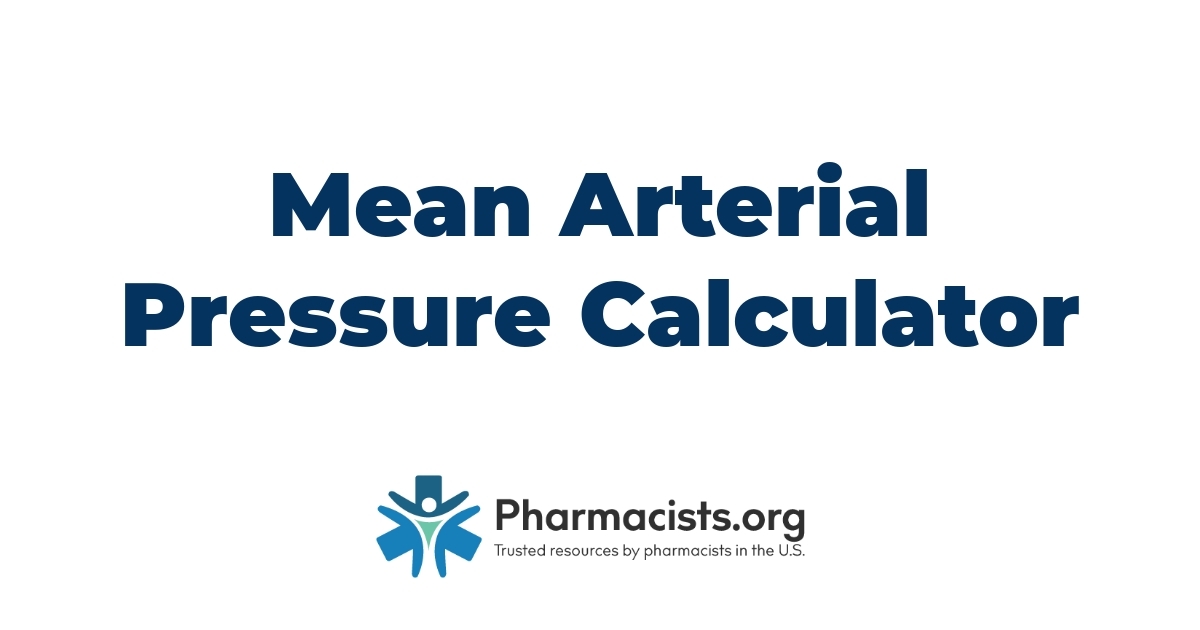Understanding Levothyroxine and Its Importance
What Is Levothyroxine?
Levothyroxine, a synthetic form of the thyroid hormone thyroxine (T4), embodies the cornerstone of treatment for hypothyroidism—a condition characterized by an underactive thyroid gland. This medication aids in restoring the balance of thyroid hormones in the body, thereby alleviating the symptoms of thyroid deficiency such as fatigue, weight gain, and mood swings.
Pharmacy professionals must understand that levothyroxine’s reliability and effectiveness hinge upon accurate dosing, which varies significantly among individuals. Each patient’s dose depends on a spectrum of factors, including age, weight, and the presence of other medical conditions, making the role of a levothyroxine dosage calculator invaluable for tailoring treatment plans to each patient’s unique needs.
The Role of Levothyroxine in Thyroid Hormone Replacement
Thyroid hormone replacement therapy, with levothyroxine as its linchpin, seeks to mimic the natural function of the thyroid gland, offering a lifeline to those grappling with hypothyroidism. The medication plays a pivotal role in metabolic processes, energy regulation, and overall physical well-being. For pharmacy owners and healthcare practitioners, understanding its impact is crucial to guiding patients through their treatment journey effectively.
Levothyroxine’s role extends beyond symptom management; it’s instrumental in preventing the complications associated with untreated hypothyroidism, such as cardiovascular disease and neurological issues. But, the path to optimal treatment is fraught with challenges, primarily due to the narrow therapeutic index of levothyroxine. This is where precision in dosing becomes critical, underscoring the significance of the levothyroxine dosage calculator.
Factors Influencing Levothyroxine Dosage
Body Weight and Age Considerations
One of the primary determinants of levothyroxine dosage is an individual’s body weight. The principle here is relatively straightforward: the more a person weighs, the higher the dosage of levothyroxine might need to be. But, this is not a linear relationship and must be approached with nuance. Body mass index (BMI) and lean body mass are significant here, underlining the importance of calculating precise dosage requirements. Besides, age plays a non-negligible role in this equation.
Typically, older patients may require a lower dosage of levothyroxine, partly because of a decrease in metabolic rate and changes in hormone absorption and metabolism over time. Recognizing and accounting for the delicate balance between body weight, age, and levothyroxine dosage is crucial for pharmacy professionals, ensuring they can advise and adjust treatment plans efficaciously.
Impact of Thyroid Function Levels
The cornerstone of determining the appropriate levothyroxine dosage undeniably rests in assessing thyroid function levels. Tests such as TSH (Thyroid Stimulating Hormone) levels offer invaluable insight into a patient’s thyroid health, guiding dosage adjustments. For individuals diagnosed with hypothyroidism, the goal is to normalize TSH levels, which can vastly differ from one person to next.
So, consistent monitoring becomes imperative. Adjustments to levothyroxine dosage based on TSH levels, alongside careful observation of clinical symptoms, enable personalized and effective treatment plans. Pharmacy professionals leveraging this data can significantly impact patient outcomes, highlighting the integral role they play in thyroid hormone therapy.
The Evolution of the Levothyroxine Dosage Calculator
From Manual Calculations to Digital Solutions
Historically, determining the appropriate levothyroxine dosage required manual calculations, based heavily on a patient’s body weight, age, and overall health condition. This approach, while effective, left room for human error and inefficiencies. The process was not only time-consuming but also required a deep understanding of the intricate balance of thyroid hormones.
In response to these challenges, the emergence of digital levothyroxine dosage calculators represented a revolutionary leap. These tools, harnessing sophisticated algorithms, now offer a more dynamic and precise method to calculate dosages. They account for multiple factors, including body weight, age, gender, and specific thyroid function test results, thereby tailoring dosages more closely to individual patient needs.
How Accurate Are Levothyroxine Dosage Calculators?
A common question among our peers centers on the accuracy of these digital calculators. In an era where technology plays an increasingly crucial role in healthcare, the reliability of these tools is paramount.
The precision of levothyroxine dosage calculators relies heavily on the algorithm’s ability to integrate and analyze multiple patient-specific variables. Studies and clinical trials have shown that these calculators, when utilized correctly, can significantly improve the accuracy of dosing prescriptions. Their algorithms are continually refined based on the latest clinical guidelines and research findings, ensuring they remain as accurate and up-to-date as possible.
It’s important to note, but, that while these calculators provide a highly accurate starting point, the role of the pharmacy professional remains crucial. We must assess the calculated dosage against the patient’s clinical context, considering any unique factors or concurrent medications that could influence thyroid hormone levels. By doing so, we ensure that each patient receives the most accurate and effective dosage possible, minimizing the risk of over- or under-dosing.
Using the Levothyroxine Dosage Calculator
Step-by-Step Guide on How to Use the Calculator
Navigating the levothyroxine dosage calculator requires a systematic approach to ensure the specificity of the dosage recommendation. Here is a concise guide:
- Input Patient Information: Begin by entering the patient’s basic information, such as age, weight, and gender. These details are crucial as they significantly affect metabolic rates and the body’s response to levothyroxine.
- Clinical Data Entry: Include clinical measurements like the Thyroid-Stimulating Hormone (TSH) level and existing conditions that could influence thyroid hormone requirements, such as pregnancy or the presence of cardiac diseases.
- Adjustment Parameters: Account for any factors that may necessitate dosage adjustments. This includes the patient’s medication history, especially the use of drugs known to interact with levothyroxine, and any genetic considerations that affect metabolism.
- Calculator Analysis: Once all necessary data is inputted, the calculator processes this information using complex algorithms to determine the optimal levothyroxine dose. It considers the nuances of each patient’s profile to ensure a personalized dosage.
- Review: After the calculation, carefully review the suggested dose. Remember, this should be considered a recommendation and not an absolute directive. Clinical judgment is imperative in the final prescription.
By adhering to these steps, pharmacy professionals can harness the levothyroxine dosage calculator to streamline the prescription process, thereby enhancing patient care and outcomes.
Interpreting Your Levothyroxine Dosage Output
The output provided by the levothyroxine dosage calculator is a gateway to personalized patient care, but it requires astute interpretation. The dosage figure is typically presented in micrograms per kilogram of body weight per day (mcg/kg/day), a standard metric in thyroid therapy. Understanding what this number signifies and the factors that might adjust its application is crucial:
- Assess Patient Variability: Recognize that individual response to levothyroxine can vary widely. Factors such as absorption rates, gastrointestinal health, and concomitant medications might necessitate dosage adjustments.
- Monitor and Modify: The initial dosage is not set in stone. Continuous monitoring of the patient’s clinical response and TSH levels is essential. Based on these observations, the dosage may need to be fine-tuned to achieve optimal therapeutic targets.
Potential Risks and Safety Precautions
Understanding the Risks of Incorrect Dosage
Incorrect dosing of levothyroxine can lead to substantial health risks, impacting both the efficacy of the treatment and the patient’s overall well-being. Hypothyroidism, if under-treated, can result in persistent symptoms such as fatigue, weight gain, and depression. Conversely, an overdose can precipitate hyperthyroidism, ushering in a host of symptoms like weight loss, heart palpitations, and anxiety. More severe complications of dosing errors include cardiovascular diseases, osteoporosis, and in extreme cases, myxedema coma or thyrotoxicosis.
In the elderly and those with pre-existing heart conditions, the stakes are even higher. These patients necessitate a more nuanced approach, as their bodies are less forgiving of even slight deviations from their optimal dose. Understanding these risks accentuates the importance of precision in levothyroxine dosage calculation and underscores why relying on outdated methods or mere estimations can jeopardize patient safety.
Safety Measures While Using Dosage Calculators
Adopting levothyroxine dosage calculators in our practice offers a leap towards personalizing medication management, but it’s not without its cautions. To mitigate risks and amplify the benefits of using these tools, observing several safety measures is vital.
Firstly, it’s crucial to ensure that the dosage calculator is sourced from a reputable provider. This means choosing calculators that are regularly updated to reflect current research and guidelines. Also, while these tools offer an excellent starting point, they’re not a substitute for professional judgment. Pharmacists should always consider individual patient factors—such as comorbidities, concurrent medications, and specific patient responses to therapy—that might affect the outcome.
Besides, thorough documentation and communication with other healthcare providers are paramount. This collaborative approach ensures that any adjustments to the dosage are well-informed and consensus-driven, reducing the likelihood of errors. Finally, educating patients about their treatment, including potential side effects and the importance of adherence to the prescribed dosage, plays a critical role in achieving successful outcomes.
I am a pharmacist, community pharmacy consultant, and medical writer with over 12 years of clinical practice experience in community, outpatient health system, long term care, and academic settings. I am also the founder of PharmCompliance.com, a website dedicated to the success of community pharmacy.
As a pharmacy project manager, I led the implementation of new service lines, assist with ensuring legal and third-party compliance for over 70 retail stores, lead quality improvement and medication safety initiatives, write policies, procedures, and best practices for all our retail sites, and help with optimizing revenue cycle and pharmacy profitability. I have been responsible for DMEPOS and vaccine accreditation through CMS, obtaining new licenses and permits, and implementing a prescription drug kiosk embedded in our physician offices.
As a medical writer, my work has been featured in GoodRx, Pharmacy Times, Drug Topics, Patient Care Online, and in peer-reviewed journals. I have also given presentations on a range of topics, from disease state pharmacotherapy for medical residents to updates on the CDC vaccine storage and handling guidelines for a medical-grade refrigerator and freezer manufacturer. I have written and presented continuing education for CEImpact, FreeCE, AchieveCE, Ascension Health, and the Florida Department of Health.
Owner, entrepreneur, and health enthusiast.
Chris is one of the Co-Founders of USA Rx.com. An entrepreneur at heart, Chris has been building and writing in consumer health for over 10 years.
Chris has a CFA (Chartered Financial Analyst) designation and is a proud member of the American Medical Writer’s Association (AMWA), the International Society for Medical Publication Professionals (ISMPP), the National Association of Science Writers (NASW), the Council of Science Editors, the Author’s Guild, and the Editorial Freelance Association (EFA).
Our growing team of healthcare experts work everyday to create accurate and informative health content in addition to the keeping you up to date on the latest news and research.

































